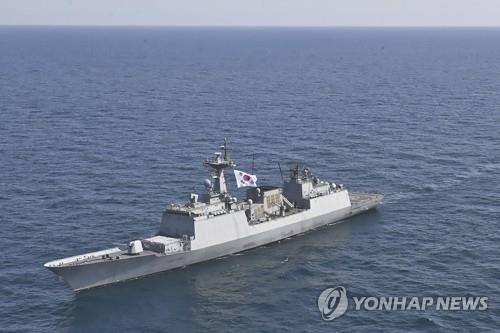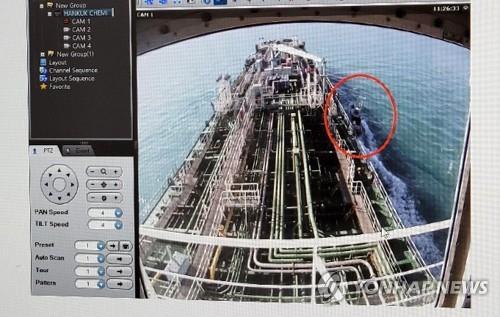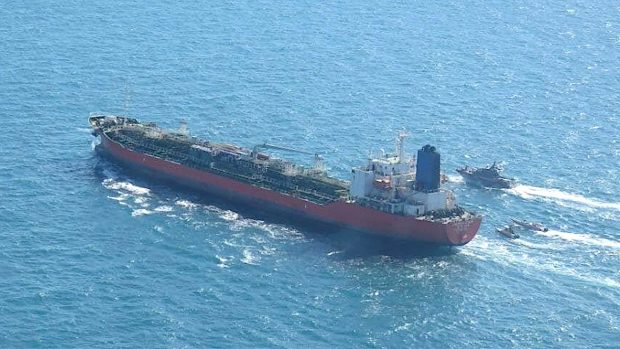Seoul sends anti-piracy unit to Strait of Hormuz after Iran seizes South Korean tanker

This 2019 file photo shows the South Korean destroyer Choi Young (Yonhap)
SEOUL: South Korea’s anti-piracy unit began operations in the Strait of Hormuz Tuesday to respond to heightened tensions after Iran’s seizure of a South Korean oil tanker, officials said.
On Tuesday, Iran’s Islamic Revolution Guards Corps seized the tanker, MT Hankuk Chemi, due to what Teheran claims to be environmental and chemical pollution by the ship, Yonhap news agency reported.
The vessel, which was travelling from Saudi Arabia to the United Arab Emirates, was carrying 20 crewmembers — five South Koreans, 11 Myanmarese, two Indonesians and two Vietnamese.
“Upon the seizure, we sent the Cheonghae Unit to the scene. It arrived in nearby waters earlier in the day and is conducting operations to deal with the situation,” a defense ministry official said, quoted by Yonhap.
The 33rd contingent of the 300-strong Cheonghae Unit on the 4,400-ton destroyer Choi Young has been in waters off Somalia since late last year to conduct anti-piracy missions in the Gulf of Aden and the Hormuz Strait.
They have been in close coordination with a multinational naval force operating in nearby waters, the official added.

This closed-circuit TV image shows South Korean oil tanker MT Hankuk Chemi arriving in an Iranian port after it was seized by Iranian troops on Jan. 4, 2021. An Iranian speedboat is seen in the red circle. (Yonhap)
Yonhap quoted Foreign Minister Kang Kyung-wha as saying that South Korea is making diplomatic efforts for the swift release of the ship and crewmembers.
“We have been trying to figure out what happened through the Iranian Embassy in South Korea and the South Korean Embassy in Iran and continuing to make efforts to address this situation,” Kang told reporters.
Asked about speculation that Tehran might have seized the ship out of anger over its assets frozen in Korea due to U.S. sanctions, Kang stressed the first priority is on “verifying the facts and ensuring the safety of the crewmembers.”
On Monday, the U.S. State Department called on Iran to release the tanker immediately, saying that the seizure is part of Teheran’s attempt to press the international community into lifting sanctions on
As the world’s most important oil passageway and a choke point between the Arabian Gulf and the Gulf of Oman, the strait is the route to the open ocean for more than one-sixth of global oil production and 70 percent of South Korea’s oil imports.

IRGC boats swarm South Korean Hankuk Chemi vessel (Tasnim news agency)
In Tehran, the Islamic Revolution Guards Corps has confirmed that it had seized South Korean Hankuk Chemi vessel “for violating the environmental protocols,” Iranian news agency Irna reported.
The vessel had left Saudi Arabia’s al-Jubail Port before it was seized by the IRGC naval force.
According to the IRGC public relations office, the South Korean tanker was carrying 7,200 tons of oil-based chemicals and had on board nationals from South Korea, Vietnam, Indonesia, and Myanmar.
The IRGC added that the vessel was directed to Bandar Abbas, noting that the issue is to be dealt with by the judicial officials.
The statement said that the seizure of the tanker was done at the request of the Ports and Maritime Organization of Iran.
























































